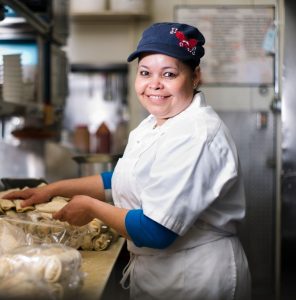Useful Tips for Helping Loved Ones with Chronic Pain
When supporting someone with chronic pain,
here are some ways a loved one can help:
Understand the nature of chronic pain.
Recognize that chronic pain differs from acute pain and can last beyond the expected recovery period. Be aware of the different types of chronic pain and the effect on your loved one’s life.
Encourage movement and physical activity.
Motivate the person to do gentle exercises, stretching or physical therapy, even if it initially causes some discomfort. Gradually increasing activity levels can help improve pain and overall functioning.
Support a balanced routine.
Help establish a regular sleep schedule and ensure the person is exposed to daylight during the day. Encourage healthy habits such as maintaining a nutritious diet and avoiding substances like drugs or smoking. Understand that someone with chronic pain may have fluctuating levels of pain. Encourage them to participate in social events and integrate into family meals or outings when they feel up to it.
Provide emotional support.
Chronic pain can take a toll on a person’s mental health. Listen when needed, offer emotional support and encourage open communication about their feelings and experiences. Help them seek professional help if needed. Understand that chronic pain can be unpredictable, and the person may have good and bad days. Practice patience, flexibility and adaptability to accommodate their needs and limitations.
Avoid enabling behaviors.
While being empathetic is important, avoid reinforcing a sedentary or inactive lifestyle. Encourage independence and motivate the person to participate in their daily activities as much as possible.
Stay informed and advocate for proper medical care.
Educate yourself about the specific condition causing chronic pain, available treatments and strategies for managing pain. This knowledge will help you better understand and support the person’s journey. Help the person find health care providers who specialize in chronic pain management Advocate for their needs and ensure they receive appropriate medical attention, including seeking second opinions if necessary.
Encourage self-care.
Remind the person to prioritize self-care, including practicing relaxing techniques, pursuing hobbies and engaging in activities that bring joy and reduce stress.
(Source: Mayo Clinic Health System)
Puyallup
1416 East Main, STE F
Puyallup, WA 98372
(253) 445-8663 Phone
(253) 445-8342 Fax
info@pacificrehabilitation.com
M-F: 8am – 5pm
Moses Lake
821 East Broadway Ave. STE 11
Moses Lake, WA 98837
(509) 350-2298 Phone
(877) 302-7136 Fax
info@pacificrehabilitation.com
M-F: 8am - 4pm
About Us * Careers * News * Privacy Policy


